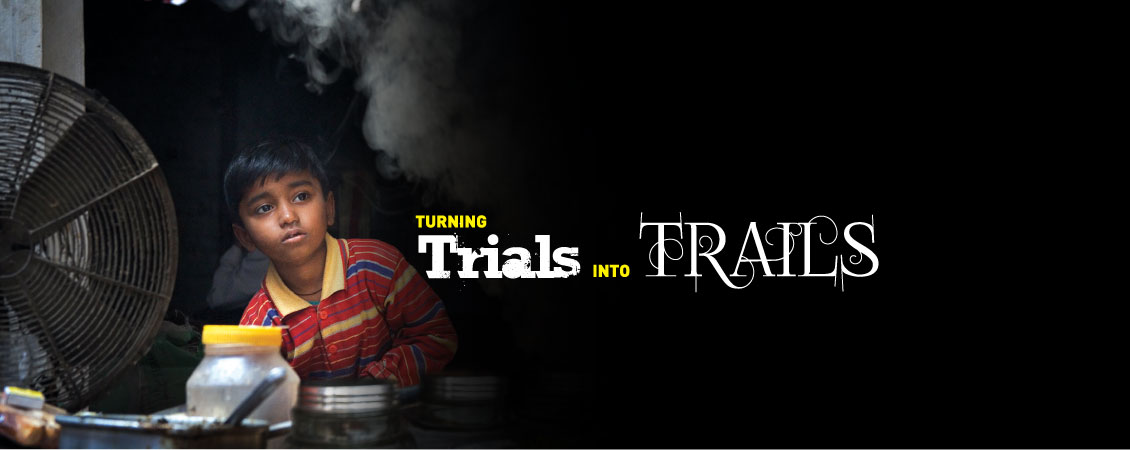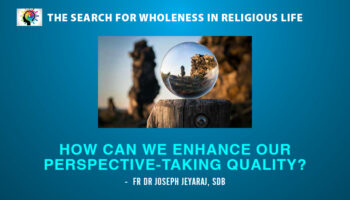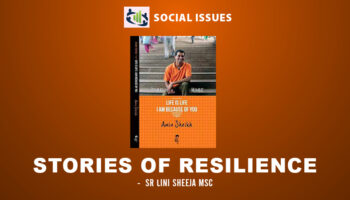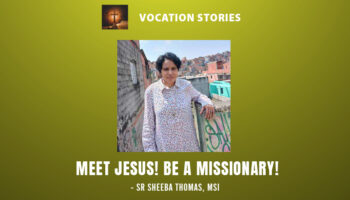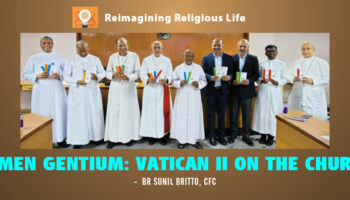Malhari was born in Tasgaon, a village in Sangli district of Maharashtra, on 7th February 1992, the youngest of six children. All his elder siblings were girls. Baburao, his father, and Gokula, his mother, worked in others’ fields. Unable to feed so many mouths with their meager income, Malhari’s parents sent all his sisters to work in the fields. Education was a luxury they could not afford.
The whole family set their hopes on Malhari, their only son. They hoped he would one day become a good farmhand and look after the family. No one in his family had ever gone to school. By the time he was nine, he was doing three jobs – selling newspapers, working at a bakery and digging in the field.
If life had been a daily struggle for Malhari and his five sisters, it soon became a nightmare. Reason: Their father’s alcoholism. He would get drunk and beat up his wife and children—every single day.
The worst day in the week was Wednesday, the weekly market day. His father would bring all his ‘bottle-mates’ home and have a party! His mother had to cook food for the whole group. Once the party was over and the friends gone, the beating and abuse would begin!
One Wednesday, when he was fourteen, he saw his father beat his mother and sisters so badly that, unable to take it any longer, Malahari shouted at his father. Now, the father turned on him and thrashed him. That very night Malhari left home, with only the clothes he was wearing and a little money. He took a bus to Pune, a four-hour journey.
He slept on the railway platform. In the morning, he got into a train and reached Vijayawada the following day. Throughout the long journey, he neither ate nor slept. He was desperately hungry. He grabbed a loaf of bread from a stall and ran away. The fear of being caught made the little boy get into a train. He travelled ticketless to Chennai.
At the Chennai railway station, Malhari met a man called Sangappa, who offered him a job — taking care of ten buffaloes. In return, Malhari could stay in the house and would be given food. The family took advantage of this small boy, and treated him cruelly. Sangappa’s wife would insult and abuse him. He was given left-over, often stale, food. After a month, unable to bear the ordeal, Malhari left the place.
Once again, he got into a train and travelled—this time to the city of Bangalore. He roamed Bangalore City Station for a day. There, as he was walking on Platform Number 4, a stranger approached him. This was Brother Noel from BOSCO (a Don Bosco organization in Bangalore that is at the service of the young at risk, and has a desk and staff at several railway stations). Malhari had lost hope of finding any job and was reluctant to trust anyone. But Brother Noel managed to convince him to go with him. The next day he was brought to a shelter for homeless boys, called BOSCO MANE. From there, he was taken to another centre where he would receive not only shelter, but also education.
Never having gone to school, and talking only his mother tongue (Marathi), Malhari found the adjustment difficult. He didn’t know even the alphabet of the local language, Kannada.
Sheeba, a counsellor at the centre, spent time with Malhari, listening to him, and making suggestions for his education. Given his lack of schooling, the staff at the centre decided it would be better for him to learn a trade rather than attend normal school. Of the trades available for study, Malhari chose welding. After eighteen months of training, he was sent for work experience. He landed a job soon after.
What about his family? Malhari had bitter memories to overcome, and little desire to get in touch with his parents. But, with the help of Ms Silvi, a staff member at the centre, he decided to contact his family. He wrote to his parents. How would they react?
His father wrote back after a few days. He phoned BOSCO. In another week, he and his wife came to Bangalore to see their long-lost son. It was a heart-warming sight to see the parents hugging Malwari, and holding him close. The next day, he went home with his parents.
Returning to his village after years, Malhari noticed the improvements in the lives of most of the families, but not in his own family. His father was still an addict, and this kept his family in dire straits. Malhari’s sisters were no longer there; they were married now and lived with their husbands.
But how to change the sad situation at home? He called up his counsellor, Ms Silvi, and explained the whole situation to her. She suggested ways of tackling this problem. Malwari decided, with her help, to help his father get over his addiction.
He met a doctor who treated alcoholics. From him, Malwari got a medicine that helps addicts. It was to be given with tea. So, the son would personally serve his father tea with the medicine, and his father would take it. With this treatment, the father’s alcoholism has greatly reduced. This change at home has made Malhari much more positive about life.
With the new-found zest for life following his father’s improvement, Malhari took a loan and bought a house in his village. He says he does not mind working sixteen hours a day—to repay the loan on the house and to look after his parents. He holds three jobs. It is tiring, of course, but there is joy in his heart to be able to do things that he once thought impossible. There is real satisfaction in being able to care for his aging parents. He wants to lead a good life and be a responsible adult.
From whom does he get the support he needs to keep going, especially in moments of discouragement? From the staff of BOSCO centre, which had welcomed him as a homeless boy and been a real home for him. At least once a week he calls up his former counsellor, whom he calls “Silvi Aunty.” Her listening and her guidance mean the world to him. When they met, he was a penniless boy with no place to call home and no one to lean on. What transformed him was the love he received at his new home in Bangalore. About Ms Silvi, for instance, Malhari says, “From Silvi Aunty I knew what love and care meant. She loved me. She listened to me. She taught me how to behave. She has helped me to turn my trials into trails.”
At Christmas we celebrate the birth of Someone who—while being greater than the universe—had no place to call home. A cattle shed is where his mother gave birth.
There are many Malharis looking for a home and for caring hearts. Many of them—both boys and girls—are tricked into semi-slavery in back-breaking jobs or sexually and physically abused. A few lucky ones—like Malhari—are saved in time through the goodness of caring persons. The next time you see children doing adult jobs at railway stations, brick kilns or cycle shops, see if there is something you can do to give them a future and a hope. Many are runaways from poor and unhappy homes. Some are chased away or sold by their relatives. With your help, they can move from a life of trials, and walk on trails of hope. You can bring Christmas into their lives.
(Adapted by Fr. K. J. Louis SDB from the Youth at Risk Directory, Bangalore, 2012)
To subscribe to the magazine Contact Us
